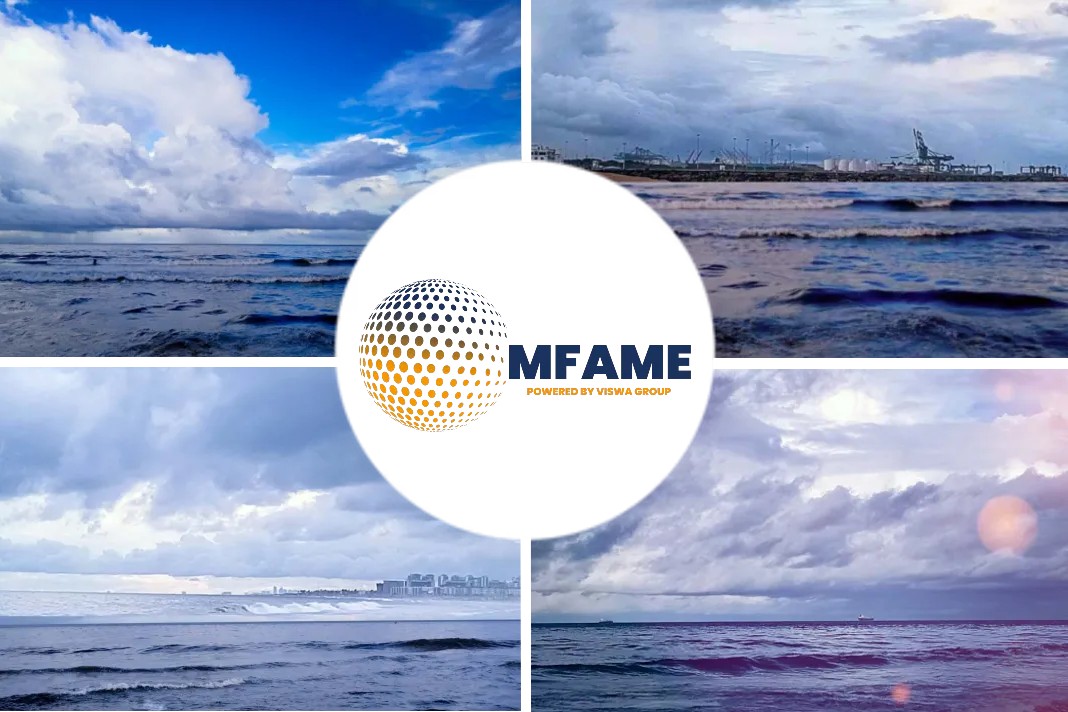A panel representing major EGCS manufacturing interests discussed scrubber performance, financial viability and future opportunities at Riviera’s Maritime Air Pollution, Europe virtual conference, reports Riviera.
The Scrubber Business
With an estimated 4,500 scrubbers either installed or set for installation by 2023, the percentage of the global commercial maritime fleet who are opting for exhaust gas cleaning emissions abatement technology is not insignificant.
However, EGCS, or scrubbers, have faced significant headwinds in the last 12 months. The extensive price spread between low sulphur fuels and traditional heavy fuel oil (HFO) that followed IMO’s global cap on sulphur in marine fuel narrowed sharply with the dual impacts of an oil price war and the ongoing pandemic.
And multiple ports and countries have banned the use of wet, open-loop scrubbers by banning the discharge of scrubber wash water in coastal waters.
The manufacturers speaking at Riviera’s conference acknowledged the issues facing the technology and remained resolute on the subject of the abatement technology’s value within the shipping industry’s existing fuels landscape.
Despite unusually severe market forces at work, Wärtsilä director EGC Sigurd Some Jenssen said “it’s fair to say that the fuel price differential, which makes the business case for scrubber installation, has been relatively stable… both with retrofits and newbuilds. It is still worth looking into [scrubbers] as a compliance means.”
Open-loop scrubbers, the most commonly used exhaust gas treatment system, discharge emissions residue into the sea. Closed-loop scrubbers collect exhaust residues and store the mixture on board for later discharge.
The Scrubber system Concerns
The European Union and others have submitted their concerns about the environmental impacts of open-loop scrubber systems’ wash water discharge to IMO’s Marine Environment Protection Committee (MEPC) for consideration. At its meeting in May 2019, IMO’s MEPC backed an EU proposal to “evaluate and harmonise the development of rules and guidance on the discharge of liquid effluents from exhaust gas cleaning systems, including conditions and areas”.
The committee agreed that the proposal will be developed further in IMO’s pollution prevention and response (PPR) technical subcommittee.
Several industry-backed studies have disputed claims that scrubber wash water poses a threat to marine ecosystems.
CR Ocean Engineering process engineer Asad Vora offered a manufacturer’s position on open-loop scrubber use, saying “Since many ports have started banning the open-loop water discharge, although we are of the firm opinion that further research will pave the way for lifting these bans as soon as possible, hybrid may be best suited for ships sailing predominantly in these waters.”
Environment Friendly Scrubber Systems
PureteQ chief executive Anders Skibdal acknowledged the work scrubber manufacturers are doing to make their systems more environmentally friendly, saying, “I think we will be able to reduce [wash water related deposits] into the ocean.”
“Despite the fact that many land-based industries have used scrubbers since the mid-1930s and discharging into the ocean has no visible effects – we should do whatever we can to improve it,” he said.
Many of the panellists noted the nature of scrubbers as a transitional technology filling a gap as the industry and the world seeks to decarbonise to address climate change. As Ecospray Technologies Marine Department director Alberto Di Cecio said, “Scrubbers are probably not a definitive solution, but are a sound, feasible and reliable solution for this timeframe – we think the timeframe will last several years still.”
“For the future, at Ecospray we see interesting challenges from the technological point of view – the carbon targets for us are related to making scrubbers more acceptable, more environmentally friendly – to reduce smoke, gas and water emissions,” he said.
The Future of Scrubber Systems
Research and development for scrubber use in other areas continues, too, as Gulf Marine Oil technical director and director of the exhaust gas cleaning systems association Don Gregory discussed. Mr Gregory related his experience as part of an EU-funded university project using scrubbers for particulate matter reduction.
“In that project, we had a small diesel engine and used electro-static methodologies (precipitators) in a wet scrubber to remove fine particles and ultra-fine particles … between 50 and 150 nanometres,” he said.
“And the technology, although it was still in its infancy and had its problems, was able to reduce the particles by about 50%, and we’re talking about millions of particles per cubic metre of exhaust gas. And those are the particles that go deep inside the chest and even can go through the barriers into the blood stream.”
Ultimately, asked to predict the longevity of the scrubber market based on an anticipation that the fuel price spread between LSFOs and HFO will increase in the near-term, the panellists all felt the financial calculation for scrubber installations would hold for several years.
Did you subscribe to our daily newsletter?
It’s Free! Click here to Subscribe!
Source: Riviera


















